Nurture nature for our future
'Treasure wildlife as your own life' is the message a volunteer conservationist wants to spread, reports Xie Chuanjiao in Qingdao, Shandong province.

The respect for life is a kind approach, says a man who has taken up the protection of Mother Nature as his lifetime work.
Xu Liqiang, 41, is the founder of a grassroots wildlife protection group in Chengyang district in Qingdao, Shandong province.
He has devoted more than 20 years to saving wild animals and plants, as well as raising social awareness about conserving biodiversity.
His efforts have made a difference: From 2009 to 2020, more than 1,700 wild animals had been saved or sheltered, including rare bird species under State-level priority conservation in China, such as the oriental scops owl, northern goshawk and the endangered yellow-legged button quail.
In addition, more than 400 twilight lily plants, an endangered mountainous flowering species found in China, have been saved and conserved.
Laoshan Mountain, with its diverse geographical environment and a mild climate, is a natural sanctuary for many species of birds.
Born and raised in a village in the western foothills of the mountain, Xu had started to think about wildlife protection from an early age.
After he grew up, as a volunteer, he joined the efforts of the wildlife protection society in Qingdao city when in college.
After graduation, Xu worked for years in a local foreign trade company. But he quit his job in 2017 and decided to follow his passion for wildlife protection full time.
"Someone has to do it," says Xu, downplaying his contribution of years, even if that meant sacrificing his wealth.
He sold the apartment his family lived in and used the money to build animal and plant shelters, nurseries and rescue stations that he now uses for awareness campaigns.
"I'm nobody," he says. "Though I have a big 'green dream'."
In 2018, Xu launched the district-level Chengyang Wildlife Protection Society in Qingdao, the first of its kind in Shandong.
Spring and autumn are the busiest periods of the year for him and the volunteers of his organization. Birds nest and breed in Chengyang and migratory birds make a stopover in Laoshan, also a provincial natural conservation area.
His team members patrol by foot each day, stopping any illegal hunting of birds and dismantle bird-catching nets.
Xu knows that the "power of an individual is limited", so he has strived to get more people to join the wildlife drive.
Now, his team of volunteers has grown to around 5,000 people that includes forest officials, police, students, teachers, businesspeople, reporters and local officials and residents.
In recent years, Xu has advocated various biodiversity conservation awareness campaigns and held ecological protection activities across the district.
His "home for birds" campaign, which is dedicated to offering better spaces for the breeding of birds and overcoming the winter cold in the forests, wetlands and river estuaries in Qingdao, has engaged more than 30,000 participants so far.
Over 20,000 artificial nests, made of recycled material, have been placed in the western Laoshan forests, Jiaozhou Bay wetland and Baisha River areas, offering warm shelters to over 1,500 wild birds.
Along the winding paths up the mountain from Shaoshan village in Chengyang, several steel structures are wildlife protection stations by Xu's organization.
The volunteers have used them to treat injured birds or animals and release them back into the forests.
Xu sends injured animals that are not native to the area to higher-level shelters after making sure that they are healthy.
Injuries also occur in Xu's daily work.
Once he lost consciousness after falling on a rock and woke up hours later in the night during a forest patrol, and at other times, he was hurt by bird hunters and scratches and cuts.
"I am not worried, because we have strong support from the public," says Xu.
"More and more people have joined us in protecting wildlife, including those who used to do something that's not so good."
In 2017, he held a three-month exhibition in Qingdao on rare wildlife species that are being protected.
He has also set up over 50 ecological ethics education bases for children and teenagers in the city.
Last year, more than 100,000 people participated in his themed campaigns.
The effort his organization is making has also been included in an official Chinese handbook introducing the country's biodiversity efforts at the 15th meeting of the Conference of the Parties to the United Nations Convention on Biological Diversity, or COP15, in Kunming, Yunnan province, last year.
Guarding wildlife, especially wild birds, has become a job that more people in Qingdao are interested in doing, and the ecological environment of the place has improved with more conservation efforts.
Recently, nearly 400 species of wild birds have been recorded in Qingdao, accounting for 28 percent of bird species in China and 91 percent in Shandong.
"Treasure wildlife as your own life, and the harmony between humans and nature will be achieved," Xu says.
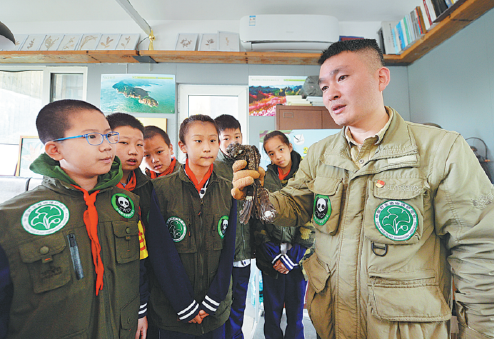

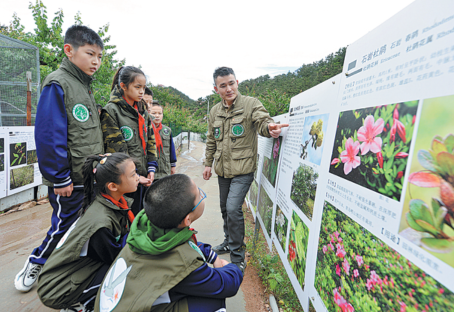
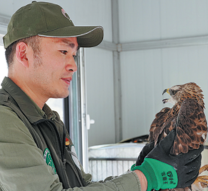
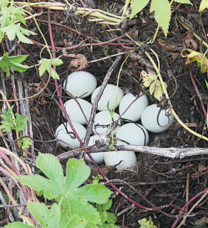
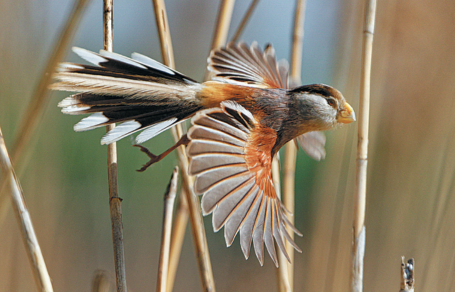
Today's Top News
- Xi's book on governance hailed for insights into 'China miracle'
- European destinations swamped by tourists
- Economy expected to maintain steady pace
- Stable, healthy Sino-US ties benefit all
- CPC plenum to focus on next five-year plan
- Talks highlight the fact that cooperation benefits both sides, confrontation harms both






























